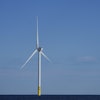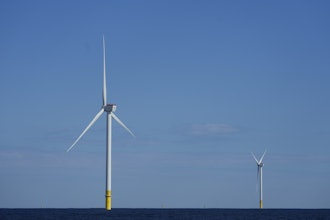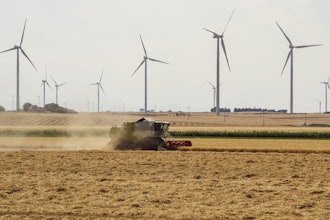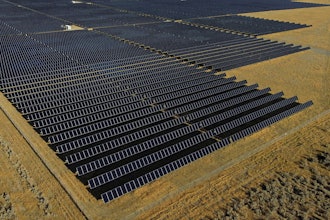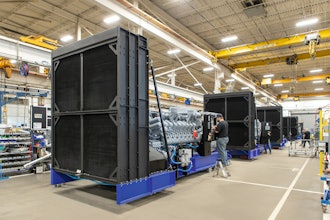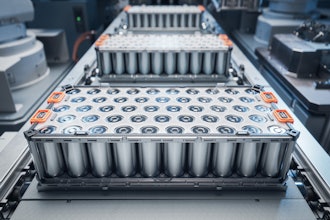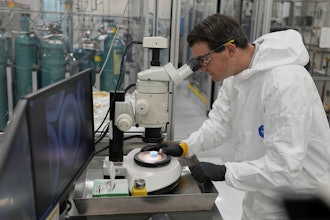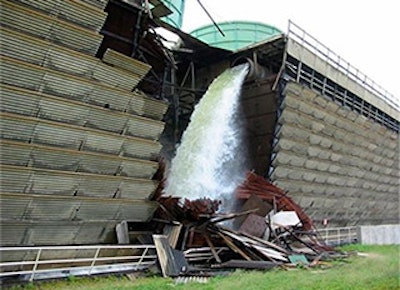
BRATTLEBORO, Vt. (AP) — The announcement that the Vermont Yankee nuclear plant is closing is bringing cheers from nuclear critics and anguish from the plant's defenders, while already a new fight is brewing over how long its owners should be given to dismantle the reactor.
 |
| This undated photo provided by the Nuclear Regulatory Commission shows damage to the cooling tower at the Vermont Yankee power plant in Vernon, Vt. Vermont's only nuclear power plant will shut down by the end of 2014, ending a nasty legal battle over the future of the 4-decade-old plant, Entergy Corp. announced Tuesday, Aug. 27, 2013. The Vermont Yankee Nuclear Power Station is expected to cease power production after its current fuel cycle and will begin being decommissioned in the fourth quarter of 2014, the company said. (AP Photo/U.S. Nuclear Regulatory Commission) |
The Entergy Corp.'s news Tuesday that Vermont's lone nuclear plant will shut down at the end of its current fuel cycle drew a mix of reactions, even within some individuals.
"Before I heard about the closing I wished they would close. Now I have mixed feelings about it," said Joan Buttrick of Dummerston, who was having lunch at the Top of the Hill Grill, a barbecue joint a few miles from the plant. Her luncheon companion, Roger Wilken of Guilford, added, "We won. How come I don't feel better about it?"
Officials ranging from Gov. Peter Shumlin to Jerry Goldberg, executive director of the Brattleboro Chamber of Commerce, said a first order of business would be helping the plant's 630 employees find new work when it shuts down in October 2014.
"Replacing it isn't the right word," Goldberg said. "I think it's reinterpreting how this community works."
Raymond Shadis of the nuclear watchdog group New England Coalition and senior elected officials in Vermont also pointed to a likely big new fight to come — over decommissioning. That's the process by which reactor components are allowed to cool and then are removed, with the site being restored to something like its pre-nuclear state.
Entergy CEO Leo Denault said that if the federal Nuclear Regulatory Commission agrees, when it closes, the plant will be placed in "safe-store," in which federal regulations allow it to be mothballed for up to 60 years while its radioactive components cool down before removal.
But Sen. Bernie Sanders, the left-leaning independent from Vermont, was among those saying, as he put it, "Entergy must go through a decommissioning process as soon as possible." He and Sen. Patrick Leahy said they would push the NRC to require the job to be done promptly.
The announcement of the closing followed what may have been the most pitched and protracted battle over any nuclear plant in the country.
During the 41 years since Vermont Yankee split its first atoms on the bank of the Connecticut River in Vernon in the state's southeast corner, Vermont grew into a bastion of left-leaning politics, hippie capitalists as ice cream makers and craft brewers and organic gardeners, with one of the most vocal — and sometimes effective — collection of anti-nuclear groups in the country.
When Louisiana-based Entergy bought Vermont Yankee in 2002 from the group of New England utilities that had owned it before, it got permission from the state Public Service Board to operate the reactor for 10 years — until the expiration of its initial 40-year federal license in March of 2012.
It quickly emerged that state policymakers — particularly the liberal Democrats in control of the Legislature — and Entergy had sharply diverging opinions about whether Vermont Yankee should be allowed to operate after 2012.
The Legislature passed a series of laws designed to shut the plant down, including a measure saying both the House and Senate had to vote affirmatively to allow the Public Service Board to issue the plant a new state permit for post-2012 operation.
The Vermont Senate voted 26-4, with four Republicans joining majority Democrats, against continued operation in 2010. The House took no action, and the state was on record against a post-2012 future for the plant. The NRC granted the plant the federal license it needed in 2011.
Entergy sued in federal court, saying Vermont's motivation to close the plant was concern over nuclear safety, something over which the NRC has sole jurisdiction. It won two rounds, in the U.S. District Court in Vermont and the 2nd U.S. Circuit Court of Appeals in New York.
But what anti-nuclear activists and the state government couldn't do, U.S. energy markets did, Entergy officials said Tuesday. Low natural gas prices brought by the shale gas boom are making it difficult for nuclear to compete as a method of electrical generation. That, coupled with tough regional market rules imposed by the regional power dispatch agency ISO New England, sealed the plant's fate, said Denault.


